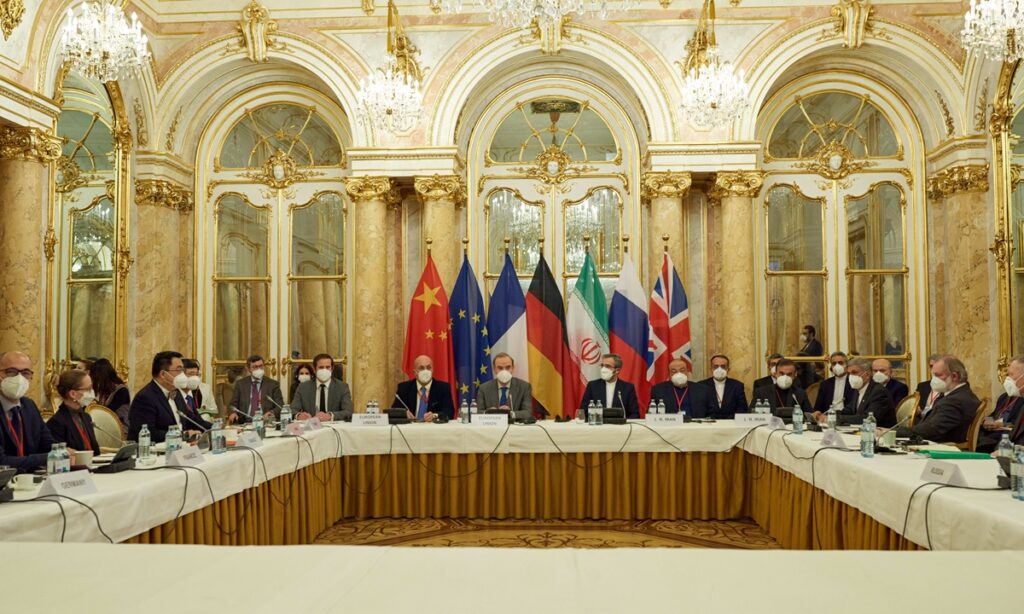Move threatens disruption to Vienna nuclear talks
The imposition of new sanctions by the US amid transparent negotiations in Vienna on the restoration of a 2015 nuclear deal indicates Washington’s ill will and lack of seriousness in the talks, the Iranian government spokesperson said on Tuesday.
Making the remarks at a weekly press conference, Ali Bahadori Jahromi said the imposition of such kinds of sanctions is clearly indicative of US animosity toward the Iranian people, according to the official news agency IRNA.
On March 30, the US Treasury Department announced sanctions on an Iran-based procurement agent and his network of companies for providing assistance to Iran’s ballistic missile program.
The US Treasury said the new sanctions target the companies that procured ballistic missile propellant-related materials for a unit of the Islamic Revolution Guards Corps (IRGC) that is responsible for the research and development of ballistic missiles.
On the next day, the Iranian Foreign Ministry spokesperson Saeed Khatibzadeh slammed the newly imposed sanctions as another sign of Washington’s ill intent on the Iranian nation, saying the move shows the US would not miss any opportunity to exert pressure on the country.
Iran signed the nuclear deal, formally known as the Joint Comprehensive Plan of Action (JCPOA), with the world powers in July 2015. However, former US president Donald Trump pulled the US out of the agreement in May 2018 and reimposed Washington’s unilateral sanctions on Tehran, prompting Iran to reduce some of its nuclear commitments under the agreement in retaliation.
Since April 2021, several rounds of talks have been held in the Austrian capital between Iran and the remaining JCPOA parties, namely China, Russia, Britain, France and Germany, to revive the deal.
Iran insists on obtaining guarantees that the succeeding US administrations would not drop the deal again and calls for the lifting of the sanctions in a verifiable manner.
In 2021, newly elected President Joe Biden pledged to revive the JCPOA, blaming Trump for allowing Iran to drop its commitments to the agreement.
In the past month, the negotiations – in which the US communicated with Iran indirectly through other participants and the European Union – have brought the parties close to an agreement.
But the talks halted in March.
Among the key sticking points is Tehran’s demand that Washington remove from the Islamic Revolutionary Guard Corps, the ideological arm of Iran’s military, from the official US list of terror groups.
US officials privately say that dropping the “Foreign Terrorist Organization” designation would have little real effect on the IRGC, because the group is under a long list of other sanctions that will not be lifted in any deal.
But conservatives in the US Congress oppose any move to drop the designation, vowing to spoil any revived JCPOA.
The first day of Iran nuclear talks, which began under the chairmanship of Enrique Mora, deputy secretary-general of the EU diplomatic service, has come to an end in the Austrian capital Vienna on November 29, 2021. Photo: VCG




